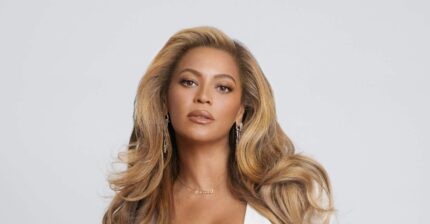Taye Diggs pried open a can of worms when he said that he still had self-esteem issues well into adulthood because of his dark skin. In a piece I wrote for MyBrownBaby.com, Taye said it wasn’t until he read a magazine article calling Tyson Beckford “beautiful” did he begin to think differently about himself.
“When I saw Tyson Beckford hailed as this beautiful man by all people, that caused a shift in my being. I remember literally waking up and walking the streets the next day and, because I had a bald head as well, feeling a little bit more proud,” said Diggs in our interview.
As I read through various posts and reactions to this story that I originally wrote to help Taye publicize his new book, Chocolate Me!, they seemed to have a similar spin: There was widespread surprise that a dark-skinned brother, especially a heartthrob like Taye, could ever have self-esteem issues related to skin color–as if the same dominant culture that has feasted on the psyches of black women for 300 years hasn’t also been doing its destructive dance through the brains of black men over the same time period. While black men may not buy skin bleaching creams like dark women are still doing around the world, or we may not pop blue contact lenses in our eyes, we still demonstrate many manifestations of our scars, if you look closely enough.
I’m not trying to put the entire community of brothers up on the therapist’s couch here, but it’s obvious that many of us are still grappling with self-hatred. While we may have put lye in our hair a generation or two ago to achieve a bone-straight, white-looking conk, these days you might have to look at our preferences in the women we choose to see the self hate. Yes, I’m talking about our continuing fascination with the light-skinned, light-eyed girls–the so-called “redbones.”
When I was a teen in the 70s and early 80s, I would wonder why so many of my peers saw nothing wrong with the idea that they would automatically find the light-skinned girls more attractive than the darker girls–even in cases where the darker girls were clearly more beautiful to any objective observer. As I read Malcolm X and any number of black intellectuals, I realized that many of my brothers were expressing a certain hatred for their own blackness. And I hoped that time, maturity and progress would heal us.
But I am sorry to report that no kind of healing appears to have taken place over the past three decades. My son, who is just months from his 20th birthday, has told me on many occasions that his homeboys are still fascinated with the redbones–even when, in his own words, “the darker girl is way more attractive.” It sounded so sadly familiar to me.
Of course this is a generation of boys who have grown up watching hip hip videos that seem to celebrate every type of woman on the planet EXCEPT the dark-skinned black woman. What is a little boy supposed to think his favorite rap artist is trying to tell him about beauty, about black girls, about black skin?
I consider myself lucky. I was raised by parents and an extended family that never sent me any loaded messages about skin color. In my own house, I was surrounded by sisters whose hues couldn’t be more different–one was a very very light beige, while the other was a dark rich chocolate. But I always got the message that they were equally beautiful. This allowed me to step out into the world and truly appreciate all the many astounding varieties of beauty in my sisters. I think we have managed to do the same for my son, judging by the choices he has made thus far.
But still, I am saddened to know that so many of his peers did not get the same messages in their homes. The mainstream culture is still out there doing its dirty work. Somehow, we have to do a better job of arming ourselves with the tools to resist.
By Nick Chiles, a Pulitzer Prize-winning reporter and New York Times bestselling author.


